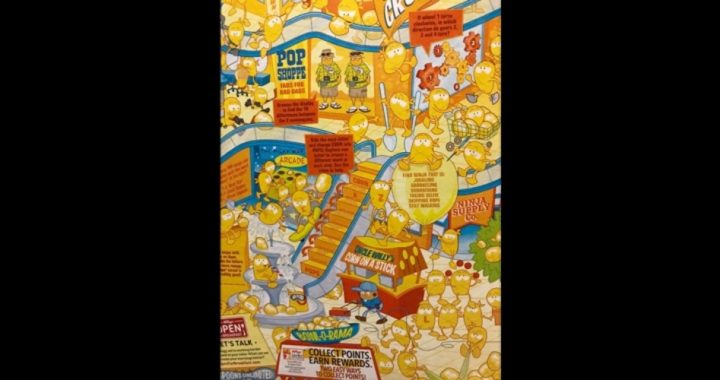
Cereal and snack food giant Kellogg’s has apologized and announced a redesign of its Corn Pops cereal box after complaints that one of the animated cereal figures on the back of the box — a Corn Pops janitor — was colored brown, against an otherwise “white” Corn Pops population.
In an October 24 Twitter post, Saladin Ahmed, a writer for comic books, noted that the lone brown corn pop in a crowd of light-colored cereal people was busily at work operating a floor waxer. “Why is literally the only brown corn pop on the whole cereal box the janitor?” tweeted Ahmed. “This is teaching kids racism.”
In a follow-up post Ahmed tweeted that “yes its a tiny thing, but when you see your kid staring at this over breakfast and realize millions of other kids are doing the same….”
Kellogg’s responded within hours on social media that the company “is committed to diversity & inclusion. We did not intend to offend — we apologize. The artwork is updated & will be in stores soon.”
In a subsequent statement. Kellogg’s officials assured consumers that they aren’t racist and are committed to diversity in all its forms. “We take feedback very seriously, and it was never our intention to offend anyone,” said Kellogg’s spokesman Kris Charles. “We apologize sincerely.”
Ahmed responded that he “genuinely appreciate[d] the rapid response” from Kellogg. But others on social media criticized the company for such a rapid concession that its cereal box represented racial insensitivity. “I’m baffled that you even answered this ridiculousness,” tweeted one individual. “Complete pandering” wrote another. “I doubt a 7 year old having his breakfast is going to turn into the Grand Wizard by looking at the box.” Tweeted a third: “What a shame! Grow up! … companies need to have backbones. This is getting ridiculous!”
Kellogg’s is just the latest company to be targeted for supposed racial insensitivity. Earlier in October Dove apologized for a three-second Facebook video post for its Dove Body Wash that showed a black woman removing a brown T-shirt to reveal a white woman underneath. In turn, the white woman removed her T-shirt to reveal an Asian woman. In its apology, Dove explained that the clip “was intended to convey that Dove Body Wash is for every woman and be a celebration of diversity.”
The company added that the Facebook post “did not represent the diversity of real beauty which is something Dove is passionate about and is core to our beliefs…. We have removed the post and have not published any other related content. We apologize deeply and sincerely for the offense that it has caused and do not condone any activity or imagery that insults any audience.”
Similarly, in April, Shea, a hair product company that caters to black women, was forced to apologize over an online video ad that featured white women. The ad, which was promoting Shea Moisturizer on sale at Target, featured both white and black women discussing how the Shea product alleviates their “hair hate” — a mixed-race advertising effort that was somehow deemed to be racially insensitive.
In a down and direct apology, a company official tweeted: “Wow — we really f-ed this one up! Please know that our intent was not, & would never be, to disrespect our community” — “our community” being an apparent reference to the company’s black customer base.
In a follow-up statement on Facebook, company officials wrote: “You guys know that we have always stood for inclusion in beauty and have always fought for our community and given them credit for not just building our business but for shifting the beauty landscape.”
Writing on BizPacReview.com, Tom Tillison observed that “when people claim ‘racism’ over every perceived offense, the term loses its meaning. Consistently crying wolf cheapens the experience of those who are exposed to actual racism. But the practice has proven to be an effective tool to browbeat corporations fearful of being branded a racist company into submission.”



